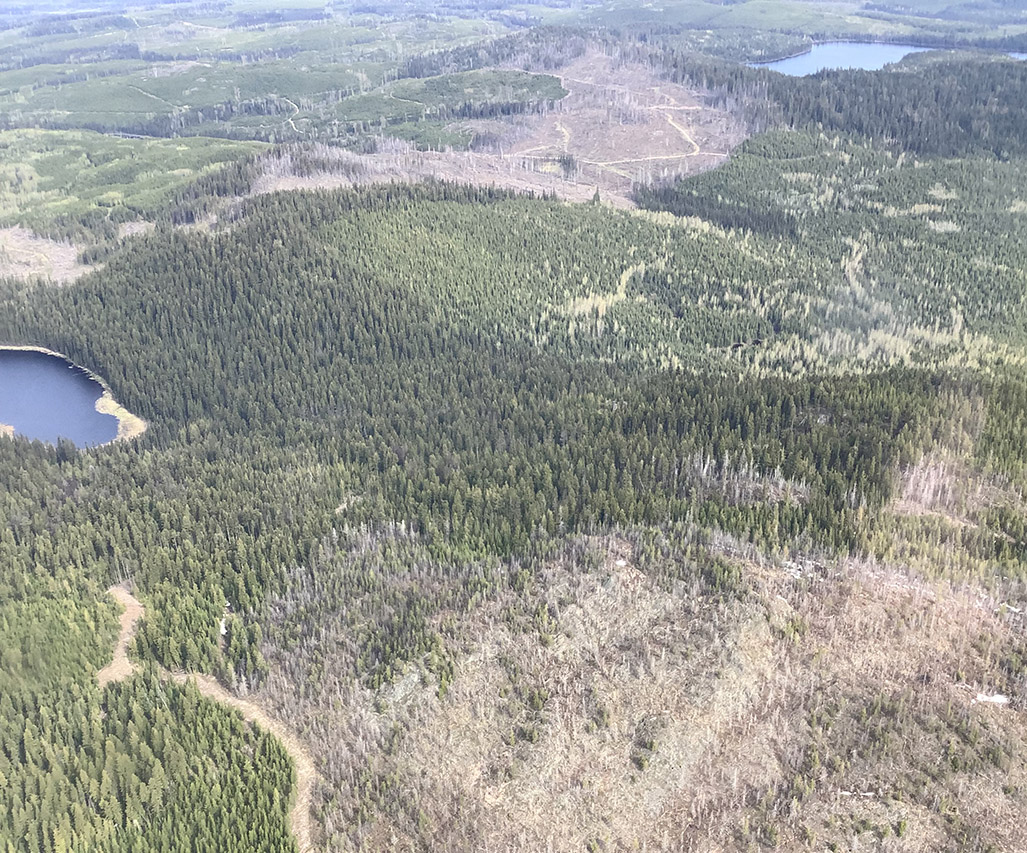
Board calls for government action to reduce catastrophic wildfire risk
VICTORIA – A new report by B.C.’s Forest Practices Board is calling for urgent action by the provincial government to reduce the risk of catastrophic wildfire in British Columbia.
The report, Forest and Fire Management in BC Toward Landscape Resilience, highlights an urgent need to change how B.C.’s forests and landscapes are managed.
“Fire prevention and suppression policies over the past century have led to a buildup of fuel in our forests, and have contributed to the loss of natural firebreaks in some areas,” said Keith Atkinson, chair, Forest Practices Board. “These shifts, combined with forestry policies and climate-change effects greatly increase the risk of catastrophic wildfire. We’re already seeing the consequences this year, with its unusually early start and record-setting wildfires.”
Provincial government data indicates that 45% of public land in BC is at high or extreme threat of wildfire. Catastrophic wildfire impacts human health and safety, housing and infrastructure, wildlife, climate and the economy. The direct cost of suppressing wildfire is rising and now averages $1 billion annually in Western Canada.
“We can’t afford to continue the status quo,” Atkinson said. “We need the B.C. government, jointly with First Nations, to lead the development of a vision and action plan that will align provincial priorities and actions to restore landscape resilience and coexistence with fire. Landscape fire management is the way to achieve this.”
Landscape fire management can proactively reduce the risk of catastrophic wildfires and restore landscape resilience through forest-fuel reduction strategies, such as creating fuel breaks, increasing the diversity of tree species and ages, decreasing forest density, and the use of cultural and prescribed burning. These strategies create a more resilient landscape that is less vulnerable to catastrophic wildfire.
These strategies create a more resilient landscape that is less vulnerable to catastrophic wildfire.
“Implementing this scale of change to land management can only happen with strong leadership and collaboration,” Atkinson said. “This is not a task that can be accomplished by one agency, but will require all levels of government, industry, and the B.C. public to work together to do things differently. The payoff will be a reduced risk of catastrophic wildfire, and a more resilient landscape for future generations.”
The Forest Practices Board is B.C’s independent watchdog for sound forest and range practices, reporting its findings and recommendations directly to the public and government. The board audits forest and range practices on public lands and the appropriateness of government enforcement. It can also make recommendations for improvement to practices and legislation.
Contact:
Shannon West
Communications
Forest Practices Board
shannon.west@bcfpb.ca
250 213-4735 / 1 800 994-5899
